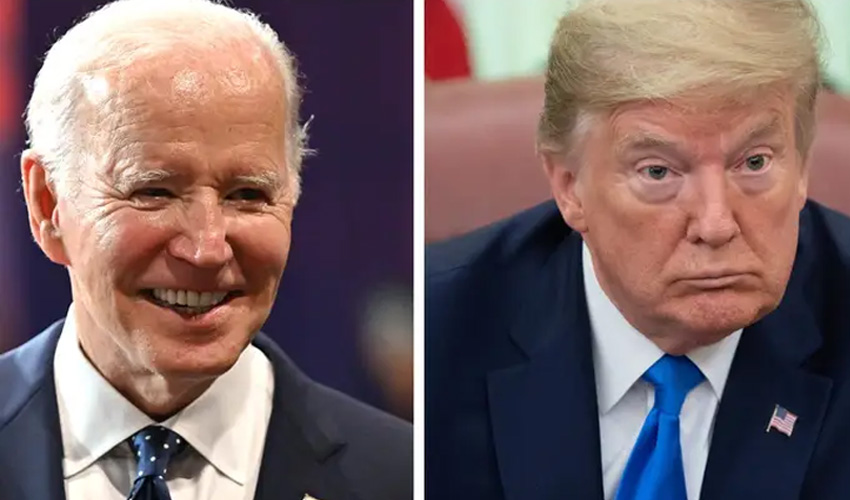US President Joe Biden and his Republican rival Donald Trump both took credit for what they said was a strong economy under their watch and blamed the other for punishing inflation as they battled on the debate stage before the Nov. 5 election.
"He's done a poor job and inflation is killing our country. It is absolutely killing us," said Trump, who was president from 2017-2021. Under his own watch, Trump said, "everything was rocking good."
Biden pinned inflation, which peaked at 9% two years ago and has since dropped to 3.25%, on Trump's handling of the COVID-19 pandemic, along with corporate greed.
"The economy collapsed" under Trump, Biden said, and when he came into office "what we had to do is try to put things back together again."
Massive disruptions from the COVID-19 pandemic, which began in March 2020, make comparing the economic records of the two rivals difficult.
Also Read: US presidential debate: takeaways as Trump, Biden take the stage
But one thing is certain - inflation has been far higher under Biden than it was under Trump. There was not a single month under Trump in which consumer price inflation exceeded 3%, and for most of that time, the Federal Reserve - whose job it is to maintain stable prices - worried that inflation was too low.
Under Biden, inflation has been above 3% for all but his first three months in office, and was above 5% for more than half his term so far.
The damage from higher prices has been significant: even though wages have risen, the bigger weekly paychecks American workers take home buy less than they did when Biden came into office in 2021.
When inflation first began to take off in the spring of 2021, most analysts and policymakers at the Fed thought it would be transitory. But by late 2021, almost nobody thought so.
The Fed, in response, increased borrowing costs aggressively to bring down inflation, and prices are now no longer rising as fast as they were.
Also Read: US presidential debate: Biden falters as Trump unleashes barrage of lies
Despite higher interest rates, usually expected to cool economic growth, the labour market has been tight, with the unemployment rate at or below 4% for the last two years, the longest such run since the 1960s.
As inflation has fallen, average wage growth in the U.S. has exceeded inflation for more than a year now, with lower income workers - such those in the leisure and hospitality sectors - among those whose real wages have risen the most.
Economists blame the inflation surge on a broad set of factors, including surging demand after the pandemic shutdowns, households flush with cash from pandemic-era stimulus delivered under both Trump and Biden, and lingering disruptions to trade and supply chains from both the pandemic and Russia's invasion of Ukraine.
Quarterly economic growth during Trump’s first three years, and during Biden’s term beginning in 2021, each compounded at an almost identical rate that annualizes to around 2.7%.



























